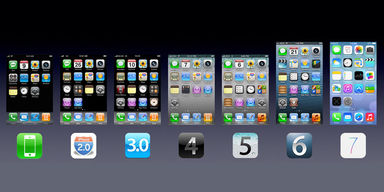Push for PizzaI want pizza, but I don’t want to order a pizza…
What if there was, like, a button you pushed, and pizza showed up?
Uber's Children vs Conscious Consumers

The phrase ‘Uber’s Children’ has been buzzing around my head since I heard Adam Morgan speak at the APG Big Thinking in Strategy Conference at the start of October.
Adam’s talk was titled ‘Strategy in the Age of the Unreasonable Consumer’, which made me think about the way we’ve been talking internally about customer experience innovation and how insanely ridiculous user expectations are.
At Made by Many, we frequently refer to even trivial glitches in user experience as ‘crimes against humanity’. It’s ridiculous I know, but I am sure that anyone reading this will identify with this level of un-reason around digital experiences.
The effect even minor irritations can have on your perception of a whole service or a brand is disproportionate, and getting worse. Every magical new experience you have has the effect of instantly turning everything you loved before into ‘pure rubbish’.
For example, do you remember the first time you held an iPhone? That first moment you held it in the palm of your hand and touched and swiped it? It was the closet thing to witchcraft you’d ever touched. Fast-forward a few years and everyone’s like, ‘This skueomorphism makes me puke…’, and then a little bit later, ‘OMG, why is everything flat? I hate it…’

Once magical. Now frustrating.
It tells you something about human nature – in terms of customer experience, the more we are trained by new service models to expect life to be as simple as pushing a button, the more intolerable experiences that aren’t that simple seem to be to us.
The implications for brands trying to create new types of service experience are clear: innovation now needs to be continuous, and the only game in town is transformational. Forget product parity because everyone else will: there’s no point in being second any more.
In the talk I gave at Kyoorius Designyatra recently in India I showed this quite extreme articulation of this phenomenon (it felt good, because the slide filled the screen and the screen was MASSIVE).

The phrase (the polite bit...) comes from Director of The Webby's, David-Michel Davies whose Webby Talks series this year is called 'At Your Service'.
‘Uber’s Children’ is a brilliant way of thinking about it. It relates to a new generation of relatively wealthy young consumers (predominantly from developed and developing countries) who are growing up with increasingly absurd expectations. Adam Morgan showed the ‘Push for Pizza’ video (below), which is hilarious and terrifying in equal measure.
The most telling bit is about 10 seconds in:
It’s funny, but it also feels a bit like we’re creating The Matrix: a sophisticated illusion that life is as simple as pressing a button, and you don’t need to worry yourself about anything on the other side.
But there is hope. A couple of weeks ago I was lucky enough to see Jessi Baker speak at Made by Many’s new talks series ‘Small Talks’.
All the speakers were brilliant, but Jessi’s talk about her start-up Provenance made me think about ‘Uber’s Children’.
Jessi Baker, ProvenanceProvenance is a place for sharing, created for those who love doing. We are for anyone who wants to discover the value in the products they buy, and share the passion and care put into the products they make.
Being a “conscious consumer”, as she describes it, is every bit as unreasonable (by the standards of contemporary life) as ‘Uber’s Children’ are, but in a good way. Provenance is concerned with everything that happens behind the button. Jessi's trying to rip a hole in The Matrix even as the illusion is being reinforced, in order to empower us to make more human, informed and sustainable decisions. In Push for Pizza terms it might be more like:
Uber's Children meets ProvenanceI want pizza, but I want to make sure I order an ethically produced, high-quality pizza made by people with strong values that I share, by empowered artisans who are well treated
Near-magical push-button services and new forms of consumer empowerment are both unreasonable – but only at the moment. Both offer glimpses of an emerging service landscape that I optimistically still believe will balance convenience and price with sustainability and value. Adam Morgan concluded his talk by quoting Charles Handy's 1989 book ‘The Age of Unreason':
Charles Handy, The Age of UnreasonAll progress depends on the unreasonable man
Update: I am a magpie, and it's only right to credit my friends at The Webby's with the phrase 'The most entitled customers in human history', which they have developed as 2014's Webby Talks. I'm also proud to be the UK Webby's Ambassador, and looking forward to seeing them all while they're in town this week. And it's good to see that on-demand services were the subject of a piece in Contagious by Nicolas Roope last week. It's a big and fascinating theme and pattern and we're going to se lots more about it.
Continue reading
Unbillable hours #2
A weekly round up of what we’ve been up to at MxM...
Creating a more focused news app
We recently helped ITV News launch apps for iOS and Android, a project that involved some pretty creative methods for getting maximum results in a short s...
How and why we made two apps in nine weeks for ITV News
Back in April, when ITV News first suggested the idea of making a news app, we asked Why? We had doubts that an app was the best way to invest in News. B...


